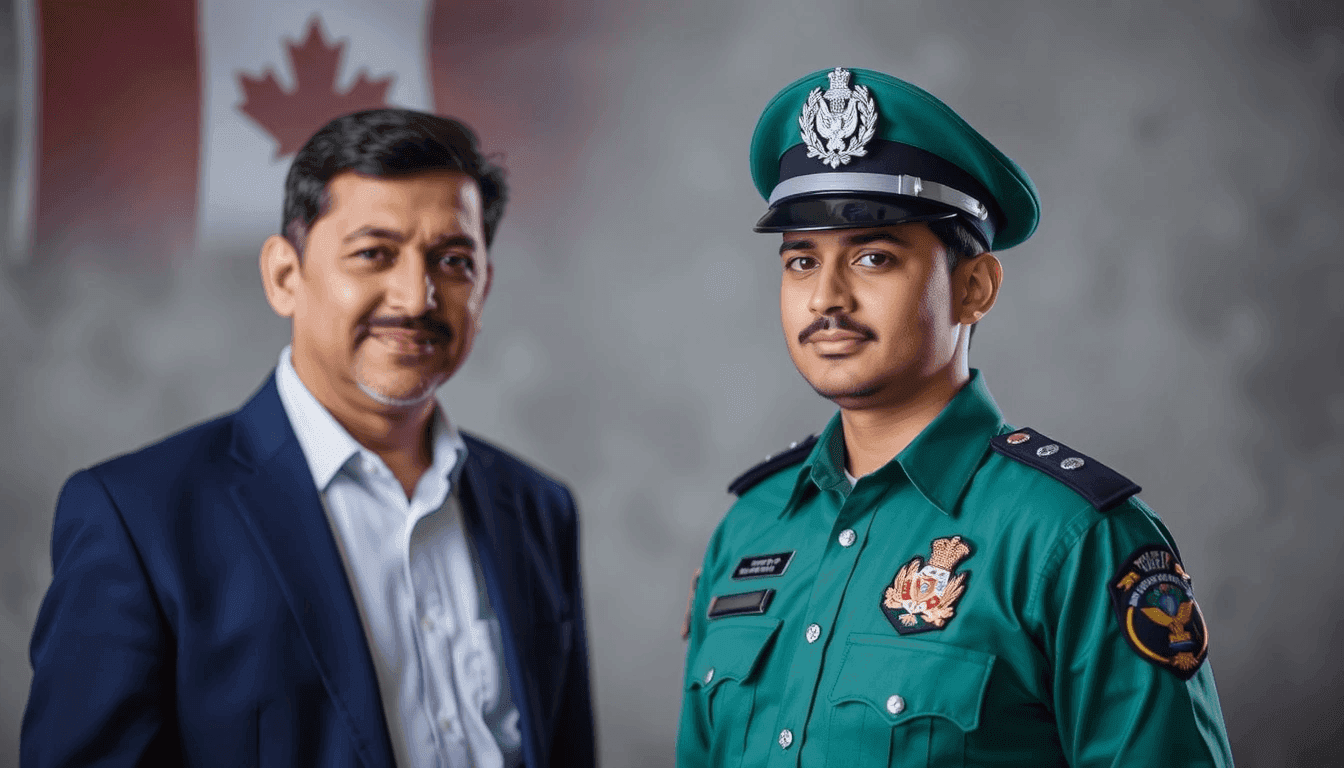

For Indian nationals residing in Canada, navigating the complexities of US immigration often involves a critical, yet frequently underestimated, hurdle: securing a Police Clearance Certificate (PCC) from India. This isn't just a bureaucratic formality; it's a foundational piece of evidence required by U.S. Citizenship and Immigration Services (USCIS), verifying an applicant's good conduct in their home country. What makes this particular requirement a cross-border conundrum is the need to obtain a document from one's country of origin while residing in a third country, Canada, all for the purpose of moving to a fourth, the United States. It's a journey many undertake, fraught with administrative nuances that demand meticulous attention.
The necessity for a PCC stems directly from U.S. immigration law, which mandates a thorough background check for all applicants, regardless of their current residence. For an Indian citizen, this means demonstrating a clear record in India itself. While seemingly straightforward, the process is layered, requiring engagement with Indian diplomatic missions in Canada, which then act as crucial intermediaries with police authorities back in India. The Consulate General of India (CGI) in Toronto and Vancouver, along with the High Commission of India in Ottawa, serve as the primary points of contact for applicants, each overseeing specific geographical jurisdictions within Canada. Understanding which mission governs your region is the first critical step in avoiding costly delays.
Applicants typically initiate the process by submitting an online application through the official Indian Passport Seva portal, selecting the appropriate mission in Canada. This initial step is vital, as it generates a reference number and often requires an appointment for in-person submission of physical documents. The documentation checklist is extensive and precise: a valid Indian passport, proof of current Canadian residence (utility bills, driver's license), a copy of your US immigration interview letter or a letter from USCIS requesting the PCC, and several passport-sized photographs. What's often overlooked, however, is the absolute necessity for all supporting documents to be either originals or certified true copies, depending on the specific instructions of the consulate. Any discrepancy here can lead to rejections and significant processing delays, which can, in turn, impact crucial US immigration timelines.
A particularly sensitive aspect of the application is the fingerprinting requirement. While some consulates might offer this service, it's more common for applicants to obtain fingerprints from a local police station in Canada or a certified fingerprinting agency. These prints then need to be attested by the consulate, sometimes requiring an additional appointment. This multi-layered verification is designed to ensure the authenticity of the applicant's identity before the request is forwarded to the relevant police authorities in India for a background check. The entire process, from application submission to the issuance of the PCC, can take anywhere from six to twelve weeks, sometimes even longer, depending on the efficiency of the Indian police district involved and the volume of applications at the consulate. Expedited services are rarely available for PCCs, making proactive planning an absolute must.
Crucially, the PCC issued by the Indian authorities will then need to be presented to USCIS or the U.S. Embassy/Consulate handling the immigration case. It's imperative that the PCC is valid at the time of your immigration interview or submission. While a PCC typically has a validity period, USCIS often prefers a certificate issued within the last six months. This means applicants must time their PCC application strategically, ensuring it remains current for their specific immigration milestones.
For businesses and individuals alike, understanding this intricate dance between three nations' bureaucracies is paramount. Delays in obtaining a PCC aren't just an inconvenience; they can derail immigration plans, impact job opportunities, and create considerable stress. Therefore, individuals should begin the PCC application process well in advance of their US immigration deadlines, meticulously review all requirements from both the Indian consulate and USCIS, and maintain clear communication channels. The journey from Canada to the U.S., via an Indian police clearance, is a testament to the globalized nature of migration, demanding both patience and precision.

About Harleen Kaur Bawa
Harleen Kaur Bawa is a licensed immigration attorney specializing in Canadian immigration and Indian services. With extensive experience in family sponsorship, Express Entry, refugee claims, and OCI services, she has successfully helped hundreds of clients navigate complex immigration processes.
Harleen holds degrees from York University - Osgoode Hall Law School and the University of Toronto, and is certified by the Law Society of Ontario and the Immigration Consultants of Canada Regulatory Council. She is committed to providing personalized, professional legal services to help clients achieve their immigration goals.
Related Articles

UK Intensifies Student Sponsor Checks: Tougher Sanctions, Student Verification Now Crucial
UK tightens student visa compliance for institutions. Discover stricter audits, penalties & crucial steps for international students to verify sponsors.

Navigating the Global Talent Maze: Translating Diplomas and Enduring Consular Waits for Employer-Led Entry
Master the global talent hunt. Understand employer-led immigration hurdles: diploma validation, lengthy visa waits, and variable processing by region impacting international hires.

Ongoing Consultations with Provinces Shaping National Policy Landscape
Federal-provincial consultations in Canada aim to forge a national strategy for economic recovery, climate, & healthcare. Explore how this will redefine intergovernmental cooperation.